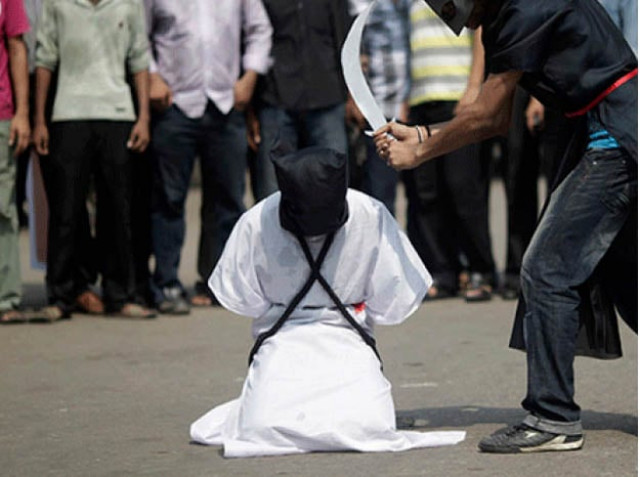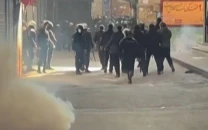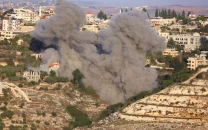Saudi execution toll highest in two decades: Amnesty
So far in 2015, on average, one person has been executed every other day, says Amnesty

PHOTO: REUTERS
The latest execution was on Monday of a Saudi convicted of killing a policeman trying to arrest him for smuggling drugs, the interior ministry said.
"So far in 2015, on average, one person has been executed every other day," said Amnesty.
Drug trafficking: Pakistani executed in S Arabia
It said this rate far exceeds annual execution tolls in recent years which "have rarely exceeded 90 for the entire year".
Last year, there were 90 executions in the ultra-conservative kingdom, "meaning that so far there has been a 68 per cent increase in executions" over all of 2014.
This year's toll is the highest since 1995 when 192 executions were recorded, the London-based rights watchdog said.
"The use of the death penalty is abhorrent in any circumstance but it is especially alarming that the Saudi Arabian authorities continue to use it in violation of international human rights law and standards, on such a wide scale, and after trials which are grossly unfair and sometimes politically motivated," Amnesty's MENA programme deputy director James Lynch said.
Saudi executions are usually carried out by beheading with a sword.
The watchdog renewed previous criticism of Riyadh for imposing the death penalty for non-lethal offences, such as those relating to drugs.
Lynch urged Saudi authorities to "halt all impending executions and urgently establish a moratorium on executions as well as overhaul the kingdom's deeply flawed justice system".
Out of the 151 executed so far this year in Saudi, 71 are foreign nationals, said Amnesty.
It warned that "foreign nationals, mostly migrant workers from developing countries, are particularly vulnerable as they typically lack knowledge of Arabic and are denied adequate translation during their trials."
It also raised concerns over "the apparent use of the death penalty as a political tool to clamp down on Saudi Arabian Shia Muslim dissidents".
Last month, the Supreme Court confirmed the death sentence against Shia cleric Sheikh Nimr al-Nimr, a leader of anti-government protests.
Pak-Saudi Arabia trade ties being strengthened: Shahbaz
His nephew, Ali al-Nimr, was also sentenced to death along with two other activists who were minors when they were arrested over anti-government protests that erupted in the wake of the Arab Spring.
"The use of the threat of executions as a tool to punish and intimidate political dissidents by the Saudi Arabian authorities is an appalling abuse of power," Lynch said.



















COMMENTS
Comments are moderated and generally will be posted if they are on-topic and not abusive.
For more information, please see our Comments FAQ